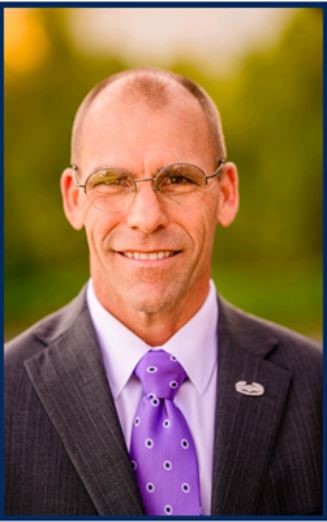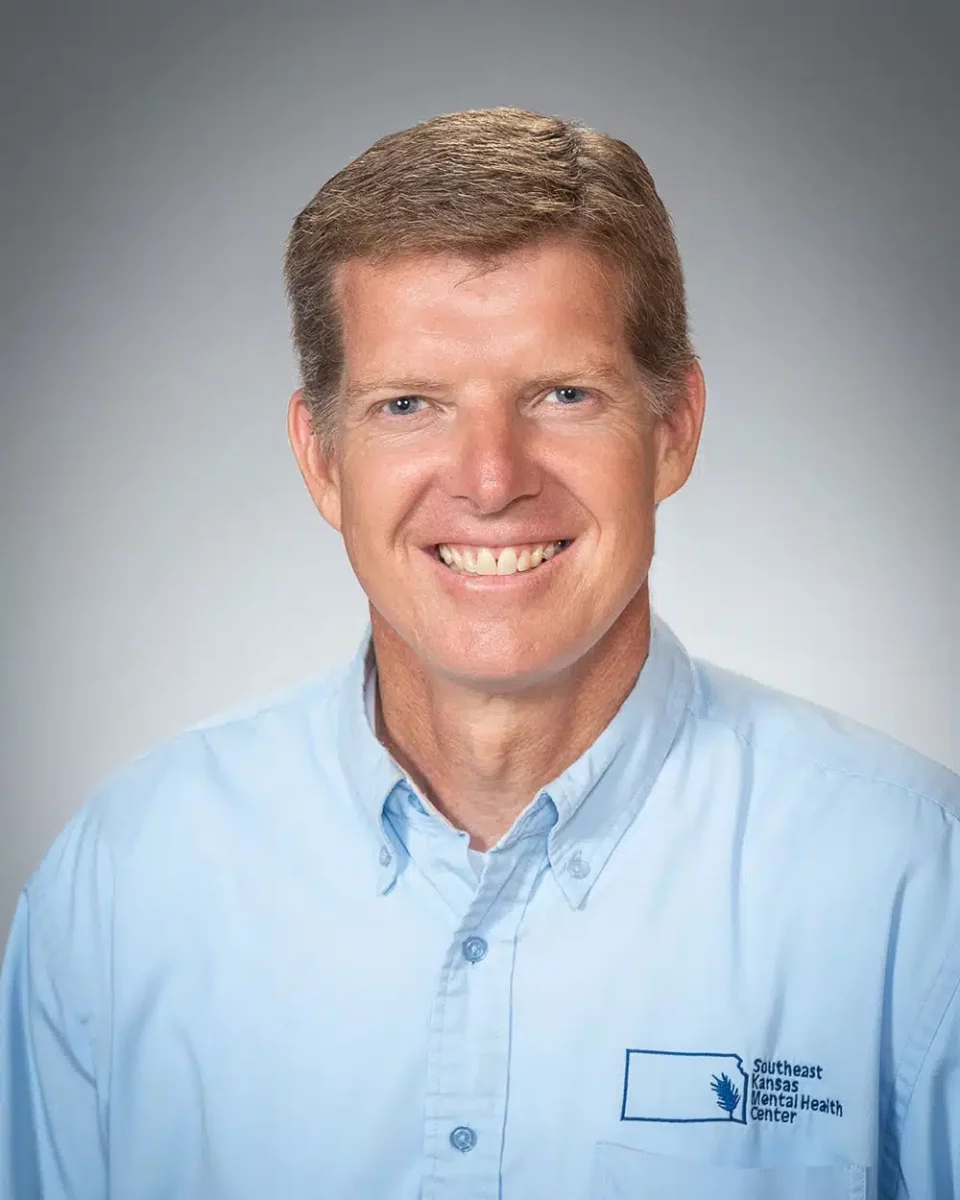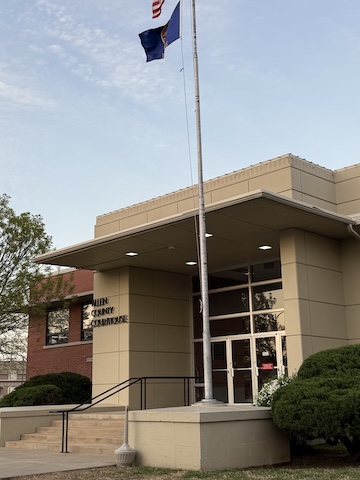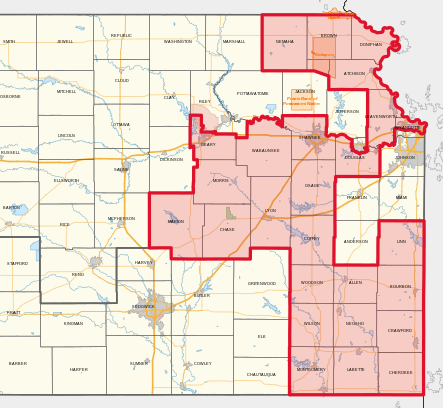A meeting of county commissioners at the Allen County Courthouse Thursday to discuss what some are calling exorbitantly high salaries among upper management at the Southeast Kansas Mental Health Center organization may have violated the law in banning a reporter last week – but nothing was accomplished to change the statutory mechanics of funding for the 6-county mental health district under fire for its high management payroll.
The summation of the weeks-long hand wringing by county commissioners whose appointed SEKMHC board members allowed the center’s executive director to notch a salary and beneits package exceeding $600,000 is consistent with state statutes currently guiding the operation – commissioners can fund the organization at any level they want – or not fund it at all.

Anderson County legal counsel James Campbell reviewed Kansas Statute 65-212 with his county commissioners Monday in Garnett. “The board of county commissioners of any such county may, upon the establishment of such mental health clinic, levy an annual tax upon all taxable tangible property in such county for the operation of such mental health clinic…”
“I’m looking at the word ‘may,’ and that’s not the word ‘must,’” Campbell told commissioners.
Defining that statute is key to the hub-bub surrounding the revelation of those executive salaries, a story first broken in late March by the Kansas Informer, after a review of SEK’s non-profit 990 IRS tax filing that lists the salaries of those key managers. County commissioners in the orgnaization have discussed privately suspending their subsidies due to those high salaries, or reducing them to a perfunctory $1 annually if forced by statute to contribute.
The review of the statute by Anderson County’s legal counsel appears to show that both are options, but would have to be initiated individually among member counties during their upcoming summer budgeting period for 2026.
The IRS filings show executive director Nathan Fawson earns some $628,000 in salary and benefits, in addition to compensation for other key employees in the hundreds of thousands of dollars. Those salaries are the result, according to SEKMHC board vice chair Dana Spencer in her presentation to the gathering of commissioners last week, of a private consultant’s salary recommendation which was later approved and implemented by her board members. So far no SEKMHC board members have responded to the Kansas Informers’ requests for comment on the topic.
Each county appoints two members to the SEK board, and funds the organization to the tune of around $100,000 apiece in tax money annually. According to tax filings from all 26 Kansas mental health center regions, Fawson’s is the highest salary paid statewide.
So as not to violate the Open Meetings Act with a quorum of any commission in attendance, only one commissioner from each county was set to attend Thursday night’s fact-finding discussion. The meeting was announced publicly at Anderson and Linn County Commission meetings prior to Thursday. It was led by Allen County Commissioner David Lee and included Anderson County Commissioner Mike Blaufuss, Linn County Commissioner Jim Johnson, Gail Klassen from the Neosho County Commission and Justin Clark from Woodson County Commission. Spencer, an appointee from Anderson County, was the sole member of the SEK governing board to attend, and described the process by which the salaries were determined and gave other information on services and the regional center’s operation.
But when local journalists arrived to cover the event, Linn County News publisher Jackie Walker was instructed to vacate the meeting room at the conclusion of Spencer’s presentation, and this author was barred from the meeting room entirely. Meanwhile, another member of the public, Linn County Commissioner Johnson’s wife, was allowed to remain in the meeting.

The decision to bar some members of the public from the meeting and not others implicates the First Amendment, according to Lawrence attorney Max Kautsch, who focuses his practice on constitutional and open government issues.
“Once the date, time and location of the meeting was announced, without any indication that the meeting was or could be closed to the public, the gathering organizers created a designated public forum,” Kautsch said. “Members of the public can be excluded from such a forum only if the same rules for exclusion are evenly applied. Here, the gathering organizers allowed a member of the public likely to agree with their viewpoint to attend the meeting, while they excluded members of the press less likely to see things the organizers’ way.”
“Moreover, the meeting organizers treated similarly situated members of the press differently. This entire course of action begs at least two questions: why did they do that? And what do they have to hide?”
Selective exclusion
Kansas Informer editor Dane Hicks knocked loudly on the locked courthouse doors for some 10 minutes after they were locked from the inside prior to the beginning of the 6:30 p.m. meeting. According to Linn County News publisher Jackie Walker, the knocking was easily heard in the basement meeting chambers. But when Walker rose to open the door, Lee responded with a forceful “no” directed at Walker.

“He (Lee) was really upset that any media was there,” Walker said later. “They absolutely did not want anybody there. He (Lee) wouldn’t allow anyone to open the door.”
Anderson County Commissioners on Monday apologized to Hicks for the conduct of the meeting.
“That was wrong,” Commissioner Blaufuss said. “It shouldn’t have been done that way.”
“It was not the way it we would have done it and it was not the way it should have been,” said Anderson County Commission Chairman Les McGhee. “But it was not our meeting.”
But once Walker was disallowed from continuing to attend, the rest of the meeting proceeded in secret.
Afterwords, Lee claimed that the organizers were simply “trying to figure out a way to bring down the salaries of the senior leadership within the SEKMH(C).” But without the same ability as another member of the public, i.e., the commissioner’s wife, to attend the portion of the meeting during which substantive discussions took place, there is no way to challenge or verify this statement.
No authority to meet in secret
Lee did not explain why it was lawful to exclude Walker from the deliberations or this author from the whole meeting.
“What’s particularly curious about this ad hoc meeting is that it could not have been held pursuant to the Kansas Open Meetings Act, which allows for closed-door meetings under some circumstances,” Kautsch said. “This is because KOMA applies only to meetings of governing bodies. But this collection of commissioners is not a governing body of SEKMHC or anything else; SEKMHC has its own governing body. Thus, the organizers did not meet pursuant to KOMA and had no authority to recess to executive session to have private discussions, even though expelling Walker had the effect of a de facto recess.”
“Although executive sessions can limit public access, a mechanism akin to that process was not available here,” Kautsch continued. “Once the organizers publicized the date, time, and location, without specifying whether the public was actually invited or why the public would or could not be there, they conferred a First Amendment right on the journalists to attend the meeting and report about what happened.”

But Commissioner Lee seems to believe the press should just take his word for what happened behind closed doors. “Let’s work together on this,” Lee told the banned reporter. “Make a headline that says ‘Commissioners working to resolve salary concerns,’ instead of ‘Reporter was left out of discussion on how to resolve salary concerns,” Lee said in a followup text to Hicks.
As organized with its appointed board members, county commissioners have no policy control over the SEKMHC other than the appointment of two board members each but have traditionally granted the organization annual tax subsidies. SEKMHC has bolstered its revenues in recent years by the acquisition of Ashley Medical Clinic in Chanute for $3.8 million and Yates Center Dental for $450,000, in what management described as a strategy to blend mental health service offerings with other genres of healthcare. Responding to records request from the Informer, SEK revealed more than 80 percent of its net revenues came from federal Medicaid billings according to its 2023 tax filing.
Dane Hicks is a graduate of the University of Missouri School of Journalism and the United States Marine Corps Officer Candidate School at Quantico, VA. He is the author of novels "The Skinning Tree" and "A Whisper For Help." As publisher of the Anderson County Review in Garnett, KS., he is a recipient of the Kansas Press Association's Boyd Community Service Award as well as more than 60 awards for excellence in news, editorial and photography.





